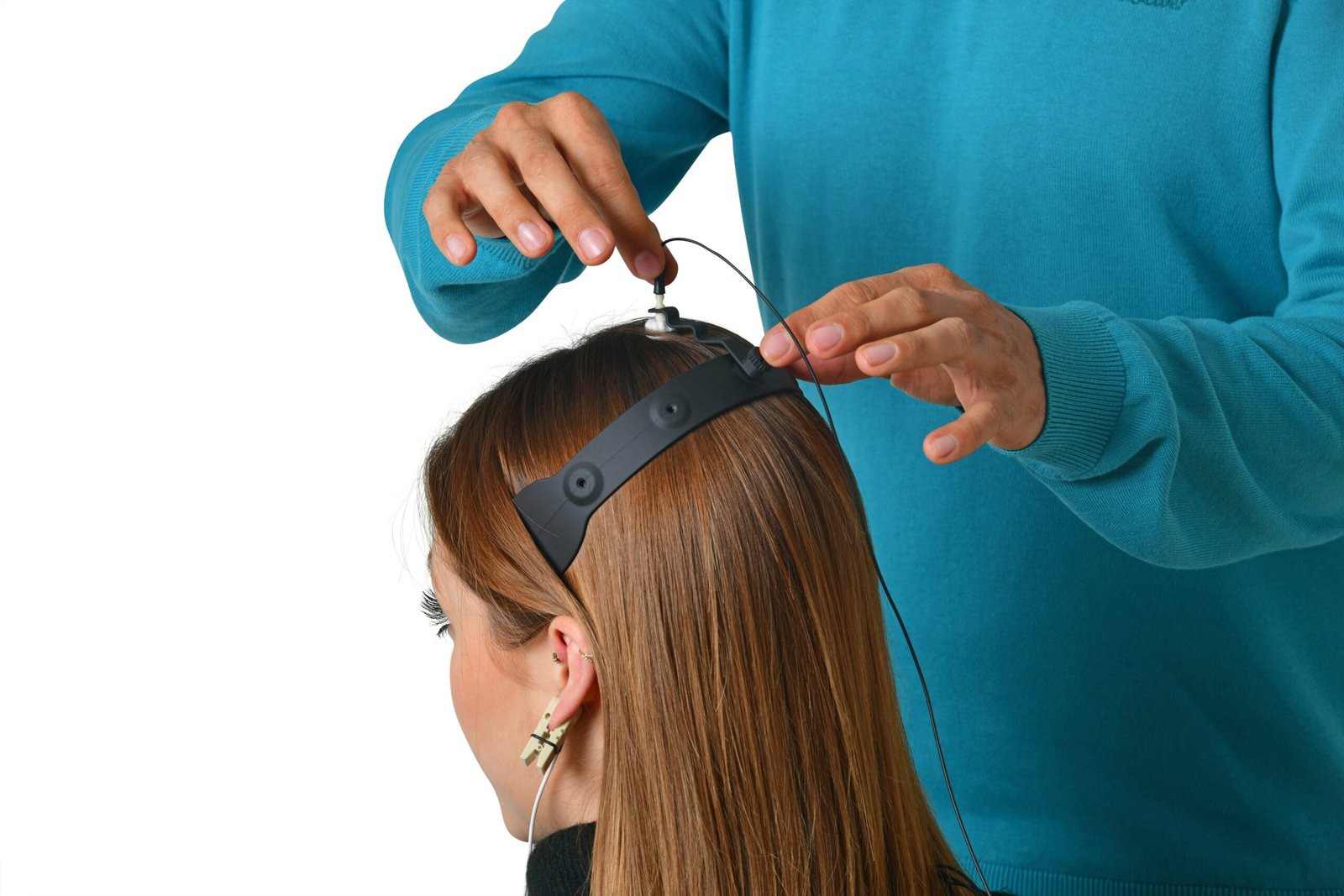The landscape of PTSD treatment has undergone significant transformation in recent years, particularly within the UK, where emerging technologies and methodologies have led to groundbreaking advancements.
Post-Traumatic Stress Disorder (PTSD) is a mental health condition that arises after an individual experiences or witnesses a traumatic event. For UK military veterans, the experiences encountered during service—such as combat, life-threatening situations, and prolonged exposure to violence—are significant contributors to the onset of PTSD. The disorder manifests through a variety of symptoms, which can affect veterans both emotionally and psychologically, leading to detrimental effects on their daily lives.
Symptoms of PTSD can vary among individuals but commonly include flashbacks, nightmares, severe anxiety, and uncontrollable thoughts about the traumatic event. Additionally, veterans may experience emotional numbing, irritability, and a sense of hopelessness that can hinder their ability to maintain relationships and engage in routine activities. Importantly, these symptoms are often exacerbated when veterans fail to receive appropriate support or treatment, leading to long-term psychological distress.
Statistics reveal the alarming prevalence of PTSD among veterans in the UK. It is estimated that approximately one in ten veterans experience PTSD at some point after their service, with certain groups exhibiting even higher rates. Factors contributing to the elevated risk include the nature of the deployment, exposure to combat situations, and the additional pressures of reintegration into civilian life. Furthermore, data suggests that younger veterans and those with multiple deployments are particularly vulnerable to developing PTSD.
Understanding these statistics and symptoms is crucial in recognizing the broader emotional and psychological impact that PTSD has on UK veterans. The challenges they face can affect not only their mental wellbeing but also their social and economic circumstances, illustrating the urgent need for effective treatment options. Initiatives aimed at raising awareness and providing resources are essential in fostering a supportive environment for veterans coping with PTSD.
Current Treatment Options for PTSD
Post-Traumatic Stress Disorder (PTSD) affects many individuals, particularly veterans, and managing this condition involves a range of therapeutic options in the UK. Among the most widely recognized treatments are cognitive behavioural therapy (CBT) and various medication protocols. CBT, a structured talk therapy, has shown considerable effectiveness in helping individuals process traumatic experiences and mitigate symptoms associated with PTSD. Patients engage with trained therapists to challenge and change unhelpful cognitive patterns, thereby gaining a better understanding of their thoughts and behaviors in relation to their trauma.
Moreover, medications such as selective serotonin reuptake inhibitors (SSRIs) are commonly prescribed to address PTSD symptoms, including anxiety and depression. Medications can complement therapeutic approaches, yet they also come with potential side effects and varying degrees of effectiveness. Thus, personalized treatment plans are essential, as veterans may react differently based on their unique circumstances, including any co-occurring mental health conditions.
In addition to CBT and medications, other therapeutic approaches such as Eye Movement Desensitization and Reprocessing (EMDR) and mindfulness practices have gained attention. These options often aim to process trauma in alternative ways and may provide relief for those who do not respond well to traditional treatments. However, veterans seeking these therapies often face obstacles, such as limited access to qualified practitioners and lengthy waiting times for appointments. Stigma surrounding mental health treatment may further deter individuals from pursuing help, compounding the issue.
Ultimately, while current treatment modalities for PTSD in the UK offer various avenues for support, their limitations highlight the need for ongoing research and innovation. There remains a pressing demand for more effective and accessible treatment options, particularly tailored to the unique experiences of veterans facing PTSD.
Introduction to Revolutionary Treatment Advances
The landscape of PTSD treatment has undergone significant transformation in recent years, particularly within the UK, where emerging technologies and methodologies have led to groundbreaking advancements. Post-Traumatic Stress Disorder, a condition that deeply affects the mental health of countless individuals, particularly veterans, has seen a shift in treatment paradigms. Traditional therapies have often fallen short, leading researchers and clinicians to explore innovative interventions that promise more effective results.
Among the notable breakthroughs is the integration of neurotechnology and psychopharmacology with established therapeutic practices. These revolutionary techniques leverage a combination of brain stimulation and tailored pharmacological treatments designed to not only alleviate symptoms but also address the underlying neural mechanisms of PTSD. Such advancements signal a departure from conventional approaches, allowing for more personalized care strategies that respect the unique experiences of each patient.
Additionally, the role of virtual reality (VR) in therapy is being explored more extensively, offering immersive experiences that can help veterans confront their trauma in a controlled environment. This method allows for gradual exposure to traumatic memories, coupled with real-time therapeutic support, which can enhance the healing process. Furthermore, there has been a growing understanding of the importance of social support and community integration in recovery, paving the way for innovative treatments that emphasize holistic care.
As these new methods gain traction, clinical practices are evolving, incorporating evidence-based insights from ongoing research. The focus now lies in optimizing patient outcomes through a multidisciplinary approach, merging psychology, technology, and individualized treatment plans. This progress not only marks a hopeful turning point for veterans suffering from PTSD but also sets the foundation for future investigations aimed at maximizing the efficacy of these revolutionary treatments.
Exploring New Therapeutic Techniques
Post-Traumatic Stress Disorder (PTSD) affects many veterans, presenting a significant challenge to their mental health and overall quality of life. Recent advancements in therapeutic techniques are providing new avenues for treatment that show promise in alleviating the symptoms associated with this condition. Three notable methods worth exploring include Eye Movement Desensitization and Reprocessing (EMDR), virtual reality therapy, and somatic experiencing.
EMDR is an innovative psychotherapeutic approach designed to help individuals process and recover from traumatic memories. It works by using a structured protocol that includes eye movements or other forms of bilateral stimulation, which can help reduce the emotional intensity of traumatic memories. For veterans, EMDR has the potential to unlock repressed traumatic experiences, allowing them to process and integrate these memories in a manner that promotes healing. Numerous studies indicate that EMDR can significantly reduce the symptoms of PTSD, helping veterans regain a sense of control over their lives.
Virtual reality therapy represents another cutting-edge technique in treating PTSD. This method immerses veterans in a controlled virtual environment that simulates the traumatic experiences they encountered. The therapeutic process includes gradual exposure to these scenarios, allowing veterans to confront their fears in a safe context. The immersive nature of virtual reality fosters desensitization and helps rewrite the negative narratives associated with their experiences. Preliminary evidence suggests that this form of therapy shows promise for veterans, as it allows for engagement in therapeutic encounters that can lead to significant symptom relief.
Somatic experiencing is a body-centered approach to healing trauma. It operates under the principle that trauma is stored in the body and that releasing this physical tension can aid in emotional healing. This technique encourages veterans to develop awareness of bodily sensations and feelings, facilitating a release of pent-up trauma. By acknowledging and working through their physiological responses, veterans can process their experiences and restore a sense of safety in their bodies.
These innovative therapeutic techniques are paving the way for a new era in PTSD treatment, offering veterans hope in overcoming the challenges they face. As research and clinical practice continue to evolve, it is crucial for veterans to remain informed about these promising options.
Case Studies and Success Stories
The journey towards successful treatment for Post-Traumatic Stress Disorder (PTSD) can often be fraught with challenges, especially for veterans who have faced traumatic experiences in service. In the UK, several veterans have found new hope through innovative treatment methodologies that have emerged in recent years. One such case is that of Sergeant Mark Thompson. After serving in Afghanistan, he struggled with panic attacks and nightmares for more than five years. Traditional treatments, including cognitive behavioral therapy (CBT) and medication, provided little relief. However, Mark decided to participate in a pioneering therapy program involving virtual reality exposure therapy (VRET). Within months, he reported a significant reduction in anxiety levels, demonstrating the efficacy of combining technology with traditional therapeutic approaches.
Similarly, former corporal Jane Miller’s experience underscores the transformative effects of groundbreaking treatments. Jane faced debilitating symptoms of PTSD, including severe flashbacks and emotional numbness, after her deployment in Iraq. After several unsuccessful rounds with conventional psychotherapy, she sought assistance from a new clinic specializing in eye movement desensitization and reprocessing (EMDR). Through rigorous sessions and a tailored approach, Jane experienced a profound shift in her emotional landscape. She remarked, “For the first time in years, I felt like a part of the world again.” Her story illustrates how personalized therapy can lead to recovery paths previously thought unreachable.
These case studies exemplify the broader trend of exploring and implementing revolutionary PTSD treatments within the UK veteran community. By integrating modern methodologies with established practices, veterans are finding pathways to reclaim their lives. As more testimonies emerge highlighting the positive outcomes, it becomes increasingly clear that these advancements are not just improving individual lives but are also poised to effect systemic changes in how PTSD is treated among veterans in the UK.
Research and Evidence Supporting New Treatments
Recent advances in the treatment of Post-Traumatic Stress Disorder (PTSD) have paved the way for innovative therapies showing promise in alleviating symptoms experienced by veterans. Numerous rigorous studies conducted within the UK have provided compelling evidence of the effectiveness of these new approaches. For instance, a controlled trial published in a prominent psychiatric journal reported that veterans undergoing a novel therapy known as Eye Movement Desensitization and Reprocessing (EMDR) displayed a substantial reduction in PTSD symptoms compared to traditional cognitive behavioral therapy.
Further analysis conducted by the National Health Service (NHS) revealed that approximately 70% of participants undergoing this revolutionary treatment observed significant improvements in their mental health status. Healthcare professionals have noted that modalities such as EMDR, coupled with mindfulness techniques, allow for enhanced emotional processing, which is crucial in overcoming traumatic memories. In discussions with mental health experts, a recurrent theme emerged regarding the necessity for holistic approaches that integrate brain-based perspectives with therapeutic frameworks.
In addition to EMDR, research on psychedelics as therapeutic agents for PTSD has gained traction. A landmark study involving psilocybin, a naturally occurring compound found in certain mushrooms, indicated that 60% of participants who received the treatment were no longer diagnosed with PTSD one year later. This finding signifies a shift in perception about the utility of psychedelics in clinical settings, emphasizing the need for continued exploration in this area.
Statistics from various organizations support the ongoing transition towards these groundbreaking treatments, demonstrating not only higher recovery rates but also improved quality of life for veterans. As the dialogue surrounding mental health expands, the integration of novel therapies fortified by scientific evidence signifies an optimistic outlook for the future of PTSD treatment in veterans. In conclusion, the research conducted highlights the potential of these revolutionary treatments to provide veterans with renewed hope and tangible recovery pathways.
The Role of the NHS in Providing Care
The National Health Service (NHS) plays a pivotal role in delivering care and treatment for veterans suffering from Post-Traumatic Stress Disorder (PTSD). Recognizing the unique psychological challenges faced by this population, the NHS has implemented targeted initiatives aimed specifically at addressing the mental health needs of veterans. These initiatives include access to specialized assessments, therapy sessions, and innovative treatment options that have shown promise in alleviating symptoms of PTSD.
Among the resources available through the NHS are evidence-based therapies such as Cognitive Behavioral Therapy (CBT) and Eye Movement Desensitization and Reprocessing (EMDR). These therapies are supplemented by a range of support services, which include dedicated veterans’ mental health teams and advocacy groups focused on improving access to care. Furthermore, the NHS has established comprehensive programs designed to facilitate seamless pathways to treatment for veterans, ensuring that they can receive timely intervention and the necessary psychological support.
Despite the strides made by the NHS in providing mental health care for veterans, various challenges persist. Resource limitations, including staff shortages and funding constraints, can hinder the effective implementation of new treatment modalities. Additionally, bureaucratic complexities may create barriers to accessing timely and comprehensive care for veterans. These obstacles require ongoing attention and investment to ensure that innovative PTSD treatments can be adopted on a wider scale.
In addressing these issues, collaboration between the NHS, government agencies, and veteran advocates remains crucial. By strengthening partnerships and enhancing the framework for mental health care delivery, the NHS can continue to make significant strides in offering veterans the support they need to navigate the impacts of PTSD. This cooperation is essential not only for current treatment practices but also for integrating emerging therapies that exhibit potential in this field.
Advocacy and Support for Veterans with PTSD
Veterans with PTSD face numerous challenges that can affect their mental and emotional well-being. In the United Kingdom, a variety of advocacy groups and organizations exist to offer crucial support to these individuals. These organizations play an essential role in raising awareness about PTSD among veterans and the general public, fostering a greater understanding of the condition and its impact on those who have served in the armed forces.
One of the key functions of these advocacy groups is to provide resources tailored specifically for veterans dealing with PTSD. This includes educational materials that inform veterans and their families about the symptoms, treatments, and coping mechanisms associated with PTSD. Furthermore, they often conduct workshops and community seminars, ensuring that individuals are well-informed about their condition and the available revolutionary treatment options.
Peer support is another vital component provided by these organizations. Many veterans find immense value in sharing experiences with others who have faced similar challenges. Support groups create a safe environment for open discussions, vulnerability, and healing. This sense of camaraderie helps to break down the isolation that many veterans experience when coping with PTSD, allowing them to connect with others who truly understand their struggles.
Moreover, advocacy organizations actively collaborate with healthcare providers to facilitate access to groundbreaking therapies and treatments. This partnership ensures that veterans receive timely interventions that can make a significant difference in their recovery journey. By fostering relationships between veterans and mental health services, these groups can streamline access to revolutionary PTSD treatments that offer hope for a brighter future.
In fostering a strong community of support, these advocacy groups not only aid veterans in navigating their mental health challenges but also empower them to reclaim their lives and find purpose after service. Their commitment to addressing the complexities of PTSD plays a crucial role in the overall healing process for veterans across the UK.
Looking Ahead: The Future of PTSD Treatment for Veterans
The future of PTSD treatment for veterans is showing promising developments, with a combination of ongoing research and emerging therapies paving the way for enhanced approaches to mental health care. The increasing recognition of PTSD as a significant issue within the veteran community has led to a surge in both governmental and private funding for innovative treatment solutions. Researchers are exploring a variety of methodologies, aiming to understand more about the complexities of PTSD and its multifaceted nature.
One notable area of exploration is the integration of technology in therapeutic settings. Virtual reality (VR) has emerged as a powerful tool, enabling veterans to confront traumatic experiences in a controlled environment. This method allows for gradual desensitization, which can be less intimidating than traditional exposure therapy. Additionally, the use of biometric monitoring technology offers real-time insights into emotional responses, allowing for tailored interventions that can adapt to the unique needs of each individual.
Furthermore, there is a growing interest in the potential of pharmacological advancements. Research into new medications aims not only to alleviate symptoms but also to address underlying neurological pathways associated with PTSD. Traditional treatment regimens are being re-evaluated, aligning with findings that suggest combining therapies can yield better results. For instance, coupling psychotherapy with medications may enhance therapeutic efficacy, providing a holistic approach to healing.
Moreover, the mental health field is witnessing a shift toward a more personalized treatment approach, emphasizing cultural competence and awareness of the specific experiences veterans face. Emerging therapies that incorporate a community-based focus can further enhance the support network available for veterans. Overall, the landscape of PTSD treatment is evolving, offering new hope for better outcomes and improved quality of life for veterans struggling with post-traumatic stress disorder.






